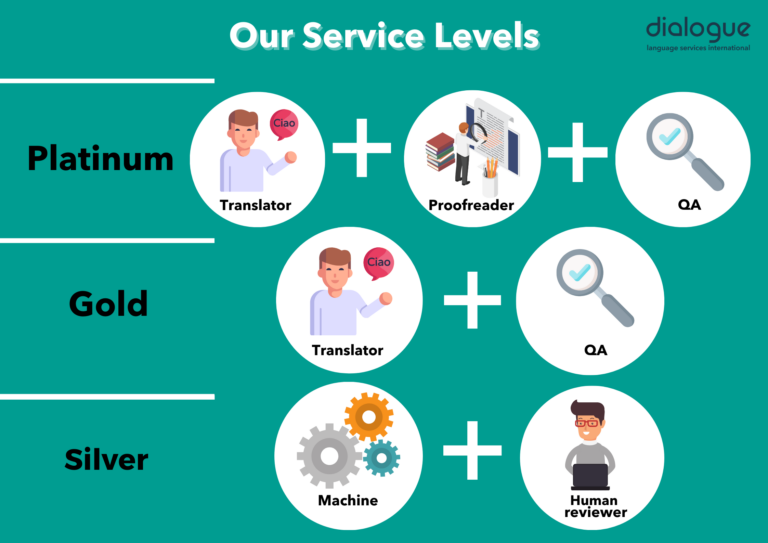So, you’ve established the content that you need to get translated (which may or may not have been a complex or painstaking process). You’re now delighted to hand the next step over to someone who can wave a linguistic wand and turn it into something that will open doors for you internationally. A bit of a daunting prospect, so you’re keen to get it right first time. How on earth do you know that what you will get back is good enough? Particularly if your own language experience only goes as far as the (albeit essential) ability to order beer…
On a basic level, there are several things you should expect from a quality translation provider:
- Use of native-speaking linguists, ideally based in the country of the language into which they are translating (so as to be up to date with language trends and latest colloquialisms etc.)
- Linguists with a minimum of 5 years’ professional translation experience and an official qualification (ideally an MA) in translation
- Rigorous vetting and testing of translators
- To be ISO 9001:2015 and ISO 17100:2015 certified
- Stringent proofreading and QA process in place
- Use of translation memory software in order to ensure consistency of terminology and efficiency of translation projects
- Ongoing monitoring of linguists in line with client feedback
Something we are (understandably) asked frequently at Dialogue is how we are able to guarantee the quality of our translations. But before we can answer that, we find that the most important thing we can do for our clients in terms of meeting expectations is to manage them. That’s why we start by saying “well…define quality”. Because depending on the content being translated and the way it is eventually going to be used, there is a whole quality spectrum that can be applied to fit purpose, priorities and budgets.
For example, you might need to quickly identify which parts of that mammoth German tender document you wish you hadn’t agreed to tackle, are actually relevant to your business. Or you might need your entire website translated into 30 languages belonging to key target territories for your new product and therefore require a creative, high-quality and impactful translation that is going to boost your revenue. Quite different scenarios. So definitely not logical to treat them in the same way or expect the same results. This is where Dialogue’s different translation quality packages come into play, with the different levels helping to show clients how we ensure that the work we provide is fit for purpose.

Platinum Service
We recommend this option if your copy is for publishing or external use (websites, corporate communications, marketing literature, contracts, manuals etc.) and is a must for important legal and medical documents.
*** High quality translation with added level of quality assurance.
Full translation, plus proofreading by a 2nd translator, and final Quality Assurance (QA) check by Dialogue Project Manager (PM).

Gold Service
For internal communications and understanding key content of formal documents (e.g. contracts, email correspondence), we can provide a first draft translation with a basic proof check. Perfect for technical translations, focusing on accuracy over style.
*** High quality translation with quick turnaround times.
Full translation by a qualified translator plus final QA by Dialogue PM.

Silver Service
When you need to get the gist of a text and it’s for internal use only, we would recommend machine translation combined with professional editing by a translator. Just what you need when speed and basic understanding are a priority, rather than style and flow.
*** Automatic, fast and high-volume capacity.
Sophisticated machine translation plus post-editing by a human translator and final QA check by a Dialogue PM.

Want to explore these packages further and think one might suit your needs? Get in touch with our translations department and they’ll do the rest!

